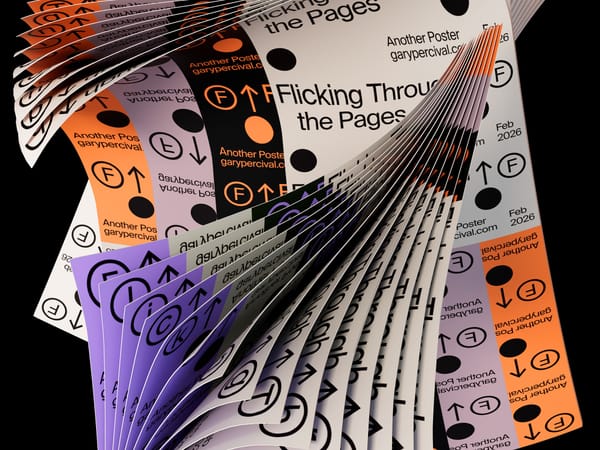Don’t Quit When You’re Bored—That’s Where the Gold Is
"Quit when you’re bored, and you’ll only ever deliver the obvious—push through boredom, and you’ll uncover the gold others miss."
Every creative project has a honeymoon phase.
The first sketch feels exciting. The early ideas sparkle with promise. You can picture the finished work in your head, and it looks brilliant.
Then comes the middle. The grind. The long, slow stretch where the spark fades and boredom creeps in.
What was thrilling yesterday feels flat today. You want to move on. Start something new. Chase fresher ground.
That’s the moment when most people quit.
And that’s exactly where the gold is hiding.
Why Boredom Shows Up
Boredom isn’t failure. It means you’ve cleared the obvious.
- The clichés are already on the page.
- The easy solutions have been tried.
- The shortcuts are gone.
What’s left requires patience and persistence. And that’s uncomfortable. But it’s also a signal: you’re close to moving past the generic and into something original.
The Filter of Boredom
Think of boredom as a creative filter.
- First, it lets through the obvious—the trendy colour palette, the default sans-serif, and the standard layout.
- Then, the competent but forgettable ideas.
- If you stay long enough, it eventually strips out the noise, leaving you with what’s distinctive.
The ideas that make it through boredom are the ones worth keeping.
Why We Quit Too Soon
Quitting at boredom is tempting.
- Novelty feels better. Starting fresh excites the brain.
- We fear wasted time. “If I’m bored, maybe this isn’t working.”
- We want quick wins. Clients, deadlines, and social media reward speed.
- We mistake boredom for failure. In reality, it’s a step toward originality.
Many projects don’t fail—they’re abandoned too early.
Borrowed Eyes in the Middle
When boredom hits, perspective blurs. You can’t tell if the work is weak or if you’ve just stared at it too long.
Borrowed eyes make the difference:
- Peers remind you what still feels fresh.
- Clients flag directions you dismissed too soon.
- Mentors help separate boredom from dead ends.
- Non-creatives notice details you’ve tuned out.
Outside perspectives stop you from walking away just before the gold shows up.
How to Push Through Boredom
- Expect it. Don’t treat boredom as failure—it’s part of the process.
- Take micro-breaks. Step away for an hour, not a week.
- Change the lens. Print small, flip it, sketch differently—shake your perspective.
- Set quotas, not clocks. Push out 20 more variations after boredom sets in.
- Invite feedback. Borrowed eyes can reignite your interest.
Patience Builds Mastery
Patience isn’t glamorous, but it’s where mastery is forged.
- The illustrator refining the same character dozens of times sharpens instincts.
- The designer testing type pairings finds combinations others miss.
- The freelancer tweaking proposals builds a feel for what lands.
Boredom is the stress test of patience. And patience is what separates average work from great work.
Boredom isn’t failure. It’s the signal you’ve pushed past the easy answers.
The ideas that survive boredom are the ones that stand out.
👉 If you want originality, stay a little longer than your boredom does.
Boredom and Momentum
Pushing through boredom isn’t just about one project. It’s how momentum is built across your whole practice.
Each time you stay a little longer—through the dull drafts, the extra variations, the days without inspiration—you’re compounding skill and resilience. Momentum doesn’t come from bursts of excitement. It comes from training yourself not to walk away too soon.
Closing Perspective
In creative work, boredom isn’t the end. It’s the threshold of something deeper.
Quit when you’re bored, and you’ll only ever deliver the obvious. Push through boredom, and you’ll discover the gold others never find—because they walked away too soon.
Stay with the work. Borrow eyes if you need them. Shift perspective if you must. But don’t quit.
Because the best ideas don’t show up in the rush of the beginning.
They wait quietly, just beyond boredom.
Thanks for reading—and if you’re stuck in the boring middle of something right now, take it as a good sign. The gold might be closer than you think.
—Gary



